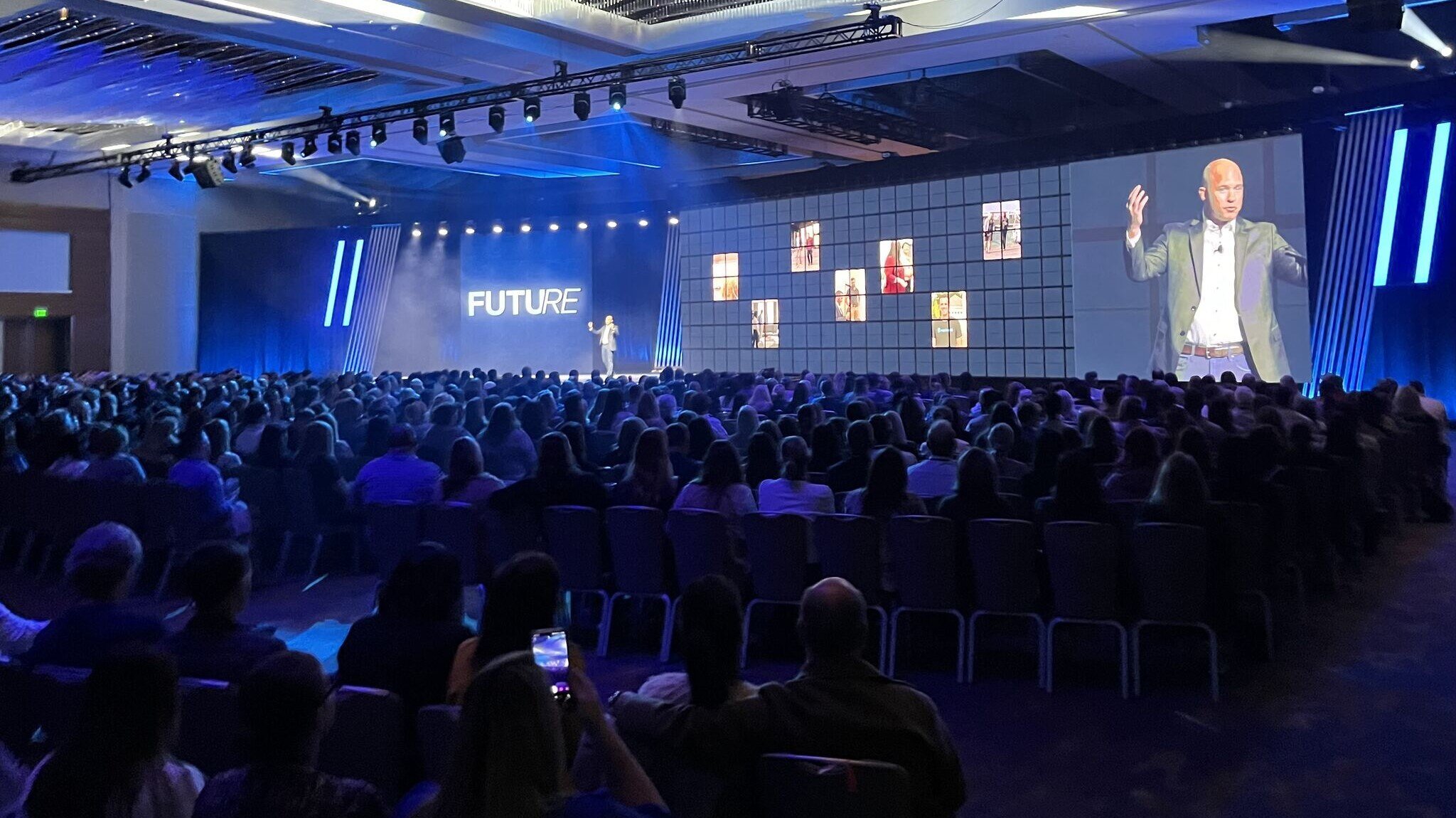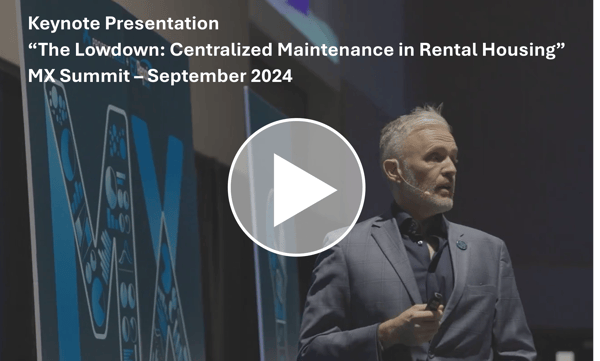
The last major multifamily technology event of the year took place last week in San Diego. And with it, AppFolio FURURE appears to have established itself as a major fixture on the industry's event calendar.
A couple of things stood out: with double the attendance of last year's event, this show is now on par—for attendance and content—with the largest user conferences in our industry. More impressively, FUTURE presented the broadest and most cohesive vision I have seen of how AI may change property management.
AI was central to an impeccably executed keynote, which featured a talk by Daniel Pink and a panel that included NMHC's Sharon Wilson-Géno. Celebrities aside, the presentation centered on the release of "Realm-X," a layer of AI that suffuses AppFolio's user experience, enabling—and radically simplifying—tasks performed within AppFolio.
Successive presentations walked through Realm-X use cases, demonstrating the day in the life view of AI-enabled property management activities. The storytelling was consistent and well-paced and made the tech look beautiful and easy. The new functionality was released to all users on the same morning as the presentation—an effective touch, as multiple users later told me they logged in after the keynote and found immediate access to the new features.
As I have written extensively in these pages, our industry tends to think of AI as another app in the stack. Operators still tend to look for widgets designed to solve a specific problem (collections, inbound call-handling...) with which the operator is already familiar. What set this presentation apart was its comprehensive vision of AI driving not just an activity, but the whole experience of using the technology. It's an exciting and highly committed approach, and the release made a natural centerpiece of the event.
Context is key
Context is important here - it is hard to understand tech adoption if you don't understand the context of the companies adopting it. AppFolio's user base is different from other large providers in our industry. For those unfamiliar, AppFolio's massive installed base (probably second only to Yardi in property management) skews toward smaller operators. Many attendees represent companies that manage fewer than 1,000 rental units. That dynamic is important both for understanding the technology and how its user base approaches property management challenges.
Centralization provides a good example. The discussions at multiple sessions highlighted how this unique mix of property management companies frames centralization differently. For scattered-site real estate, central models can come more naturally, as these companies typically have fewer individuals assigned to each property.
Leaders from these smaller property management companies described "centralization" in terms of optimizing e.g., maintenance teams across specific geographies with diverse property types. I continue to be impressed with the sophistication that leaders of smaller portfolios demonstrate in describing their maintenance operations and strategic decision-making.
Some described, for example how they manage the mix between W-2 employees versus external vendors - a critical element where properties do not always have teams assigned to communities, and properties are less likely to conform to cookie-cutter formats. It has long been my view that multifamily can learn from single-family operations, a topic I addressed at length in a recent conference presentation.
Fascinating Contrast.
Our industry is unusually fragmented and diverse, and it is helpful to understand the range of problems being solved by the many thousands of companies in rental housing property management. It was particularly interesting to attend this event immediately after the previous week's OPTECH.
Presentations and conversations had a markedly different focus at the two events. Simplicity and ease of use dominate the dialogue with smaller companies (where it is often the decision-maker's time that the software is saving). Larger operators and institutional asset managers, by contrast, tend to prioritize technologies that unlock new sources of value. Simplicity is a key design principle, but typically, it is not what motivates large companies to adopt technology.
That has a profound effect on how companies consider ROI. Larger companies consider best-of-breed technology because they are trying to become better at a particular activity. Smaller companies with fewer resources and thinner management structures may prefer to get tasks off their desks altogether.
One insightful presentation, given by Jeremy Batson of One11 Advisors described the advantages smaller operators have over larger firms, such as nimbleness, responsiveness, and quicker decision-making. Those characteristics were in evidence during the client panel sessions. They also indicate why AppFolio's bold commitment to a truly AI-enabled property management experience makes perfect sense.
One final thought: I have long been of the view that AppFolio has the most effective B2B marketing organization in our industry. There are larger marketing teams and budgets, but no better records for execution and contribution to company growth. Increasing the size of this show while maintaining this level of brand and message consistency is a huge accomplishment, for which I congratulate Lisa Horner and her outstanding team. AppFolio FUTURE has arrived as a fixture on the annual conference circuit.



